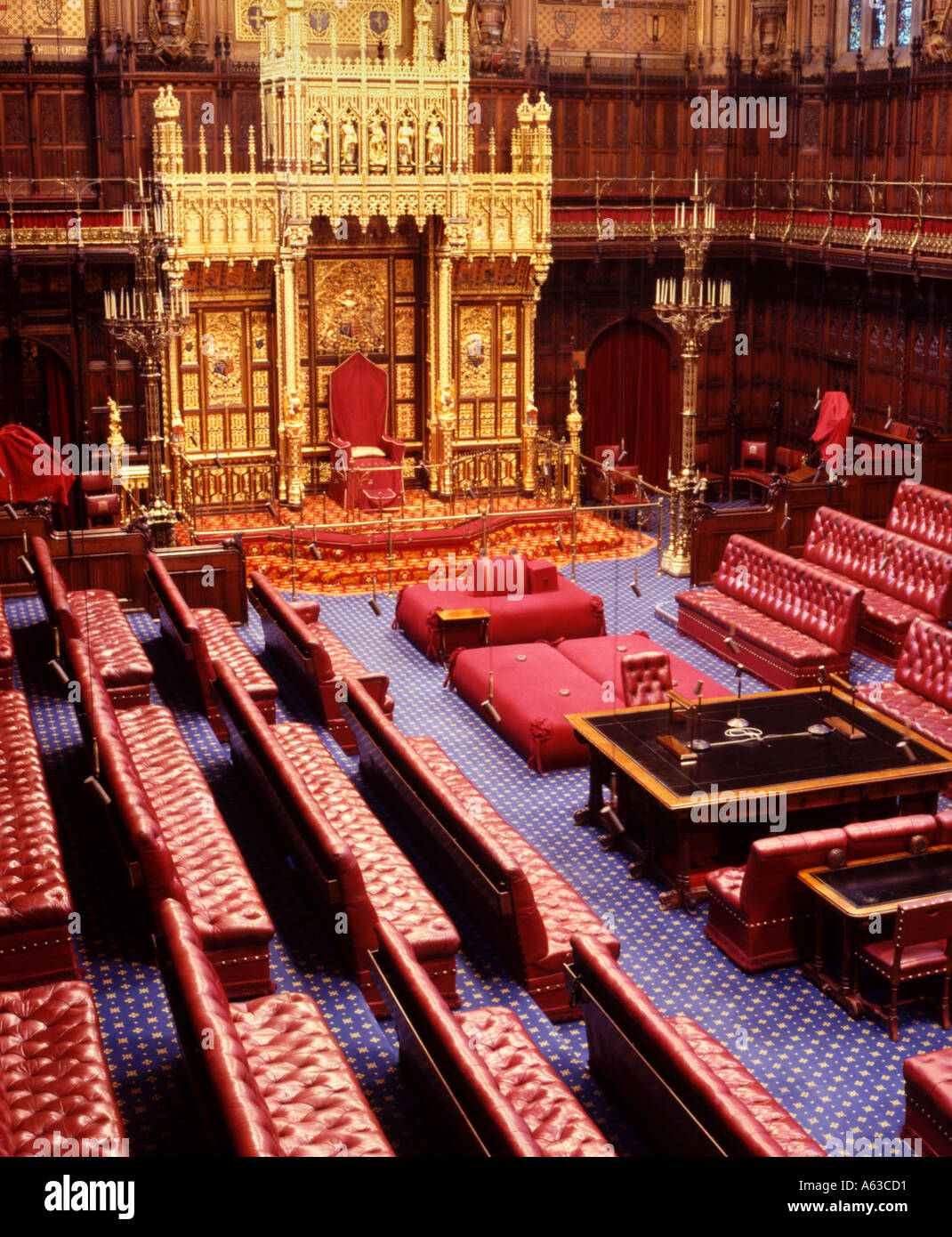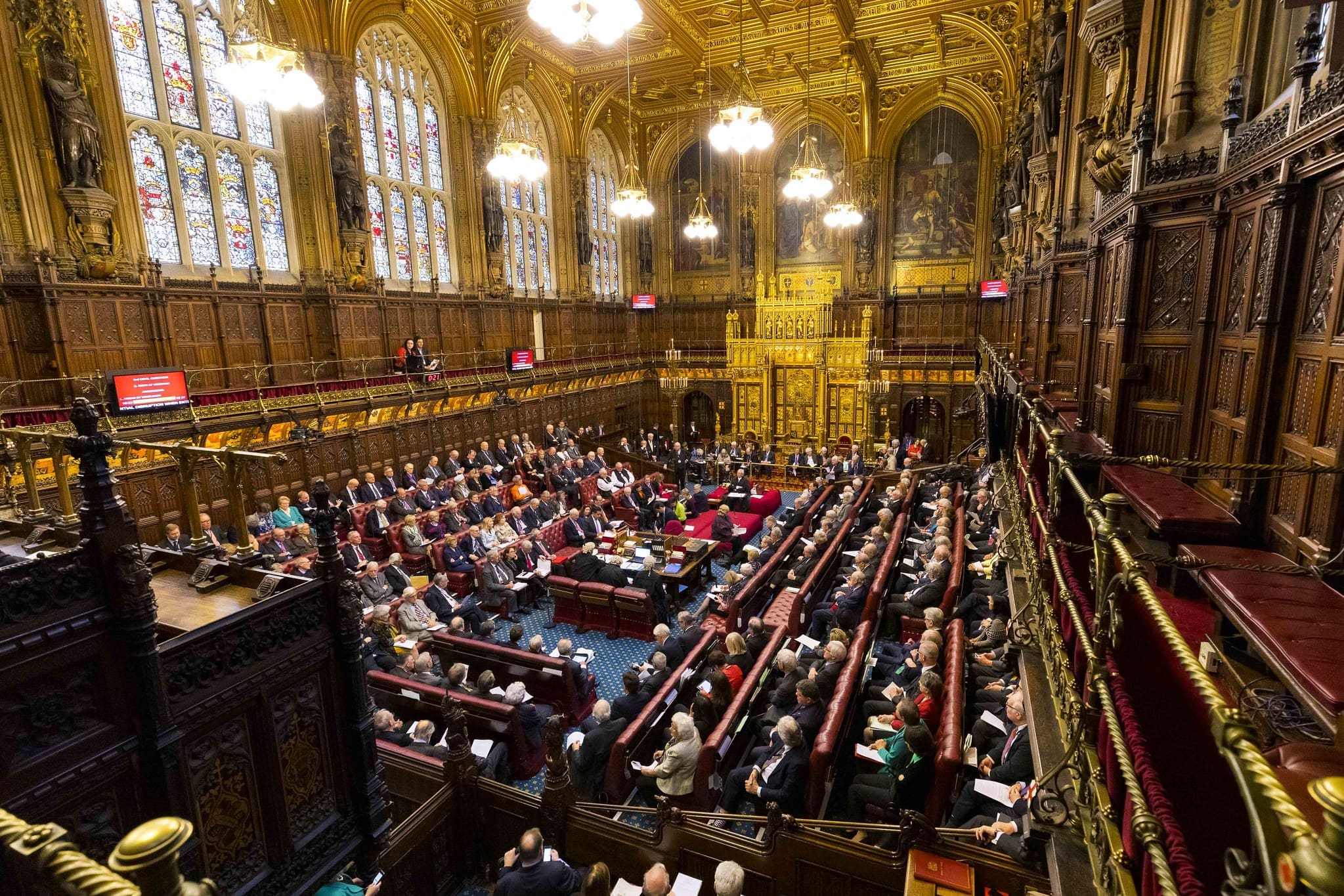Table Of Content

The powers of the modern House of Lords are extremely limited—necessarily so, since the permanent and substantial majority enjoyed there by the Conservative Party would otherwise be incompatible with the principles of representative government. The House of Lords’ powers are defined in the Parliament Act of 1911 and 1949. Under the 1911 act, all bills specified by the speaker of the House of Commons as money bills (involving taxation or expenditures) become law one month after being sent for consideration to the House of Lords, with or without the consent of that house.
Current sitting members
The measure, which went into effect in late 1999, was seen as a prelude to wider reform, and in 2007 members of the House of Commons offered support for two separate proposals, one calling for the House of Lords to be 80-percent elected, the other 100-percent elected. The nonbinding vote was influential in forming the July 2008 White Paper put forward by Justice Secretary Jack Straw that outlined potential reforms. These included the reduction of the total number of lords, the complete severance of ties between the peerage and seats in Parliament, and an either 80- or 100-percent elected chamber consisting of lords serving nonrenewable 12- or 15-year terms. Future votes in both houses were required before any such restructuring of the House of Lords could occur.
House of Lords: What is it and what could Labour replace it with?
The popular cause of reform, however, was not abandoned by the ministry, despite a second rejection of the bill in 1832. Prime Minister Charles Grey, 2nd Earl Grey advised the King to overwhelm opposition to the bill in the House of Lords by creating about 80 new pro-Reform peers. William IV originally balked at the proposal, which effectively threatened the opposition of the House of Lords, but at length relented. The House, once a body of only about 50 members, had been greatly enlarged by the liberality of George III and his successors in creating peerages. On top of everything you built for the first round of upgrades, you’ll have to have a bit more industry running for this upgrade. You’ll probably need a stonecutter camp (2 timber) near a fieldstone deposit by this point.
The tortuous journey of the UK government’s Rwanda plan
The abolition of the office was rejected by the House of Lords, and the Constitutional Reform Act 2005 was thus amended to preserve the office of Lord Chancellor. The Act no longer guarantees that the office holder of Lord Chancellor is the presiding officer of the House of Lords, and therefore allows the House of Lords to elect a speaker of their own. Until 2009, the Lords Temporal also included the Lords of Appeal in Ordinary, more commonly known as Law Lords, a group of individuals appointed to the House of Lords so that they could exercise its judicial functions.
Anyone but You on Netflix, Monkey Man, and every new movie to watch at home this weekend

It follows a reverse last year of that policy in the supreme court, where the bill was found to be unlawful, necessitating the present bill to overrule its predecessor. The government desperately wants its bill to allow some deportation to take place this summer, which is why it has resisted a flurry of amendments passed by the House of Lords. Today, the two houses of Parliament—the House of Lords and the House of Commons—meet in the Palace of Westminster in London, and are the only body in the United Kingdom’s constitutional monarchy government with the authority to create legislation and make laws. During Henry IV’s time on the throne, the role of Parliament expanded beyond the determination of taxation policy to include the “redress of grievances,” which essentially enabled English citizens to petition the body to address complaints in their local towns and counties.
Highlights from the 2022-23 session in the House of Lords - Committees
Highlights from the 2022-23 session in the House of Lords.
Posted: Thu, 26 Oct 2023 07:00:00 GMT [source]
The chamber's membership again expanded in the following decades, increasing to above eight hundred active members in 2014 and prompting further reforms in the House of Lords Reform Act that year. The House of Lords remained more powerful than the House of Commons, but the Lower House continued to grow in influence, reaching a zenith in relation to the House of Lords during the middle 17th century. Conflicts between the King and the Parliament (for the most part, the House of Commons) ultimately led to the English Civil War during the 1640s. In 1649, after the defeat and execution of King Charles I, the Commonwealth of England was declared, but the nation was effectively under the overall control of Oliver Cromwell, Lord Protector of England, Scotland and Ireland.
By this time, citizens were given the power to vote to elect their representatives—the burgesses—to the House of Commons. By 1254, the sheriffs of the various counties in England were instructed to send elected representatives of their districts (knowns as “knights of the shire”) to consult with the king on issues related to taxation. Four years later, at the English university town of Oxford, the noblemen who served in Parliament at the time drafted the “Provisions of Oxford,” which called for regular meetings of the legislative body, composed of representatives from each of the counties. Members of the House of Lords spend a lot of their time considering draft government bills before they become law. However, any proposed amendments to legislation must also be agreed by the Commons.
Until 1999 its membership included clergy, hereditary peers, life peers (peers appointed by the prime minister since 1958), and the judges of the Supreme Court of Judicature (Britain’s final court of appeal). Though it predates the House of Commons and dominated it for centuries, its power has gradually diminished. Its power to affect revenue bills was constrained by the Parliament Act of 1911, and in 1949 its power to delay by more than a year the enactment of any bill passed by the Commons was revoked. In 1999 the hereditary peers lost their right to sit in the House of Lords, though an interim reform retains their voice in a more limited fashion.
Although the defeat of government legislation by the house has been relatively rare on major legislation, it sometimes does defy the government, especially Labour Party governments. For example, 230 pieces of legislation proposed by the Labour government of 1974–79 were defeated by the House of Lords. When the House of Lords resolves itself into committee (see below), the Chairman of Committees or a Deputy Chairman of Committees presides, not from the Woolsack, but from a chair at the Table of the House. The presiding officer has little power compared to the Speaker of the House of Commons. The presiding officer only acts as the mouthpiece of the House, performing duties such as announcing the results of votes. This is because, unlike in the House of Commons where all statements are directed to "Mr/Madam Speaker", in the House of Lords they are directed to "My Lords"; i.e., the entire body of the House.
They’re where your town’s families build houses, they generate income for your treasury, and they’re also how you’ll build a number of important workshops in backyard extensions. The legislation is designed to allow the government to put some asylum seekers on one-way flights to Rwanda, where they would have their claims processed by the authorities in that Central African country. If they were then granted refugee status, they would be resettled in Rwanda, not Britain. Britain’s Parliament passed contentious legislation to allow the deportation of asylum seekers to the African country, a political victory for Prime Minister Rishi Sunak.
As in the early Witans, these barons were not elected, but rather selected and appointed by the king. These institutions functioned—with varying degrees of success—as law-making bodies and law enforcement agencies throughout England during the Middle Ages. The two bodies didn’t regularly convene, but they paved the way to the bicameral legislature that exists today. There are also peers who remain members of the House, but are currently ineligible to sit and vote. If the new chamber's members considered themselves more representative of the UK than MPs, they may undermine the Commons by blocking new legislation, adds Ms Sargeant.
You will need a Woodcutter’s Lodge with a family assigned to it so they can generate firewood for the village. Excess firewood will get stored in your Storehouse, and the Market will hand out firewood to the citizens. Each start in Manor Lords is unique – every time you begin a new game, you could end up in any one of eight regions that make up the game’s fictionalized slice of medieval Germany. Your first year in game will be the hardest – luckily, we’ve collected some top-tier advice from other wizened barons and traveling merchants to help new players with their early settlements and ensure stability in the years to come.
Most legislation, with the exception of money bills, may be introduced in either the House of Lords or House of Commons. This Act made provision to preferentially admit female bishops of the Church of England to the Lords Spiritual over male ones in the 10 years following its commencement (2015 to 2025). This came as a consequence of the Church of England deciding in 2014 to begin to ordain women as bishops. The power of Parliament grew slowly, fluctuating as the strength of the monarchy grew or declined.

No comments:
Post a Comment